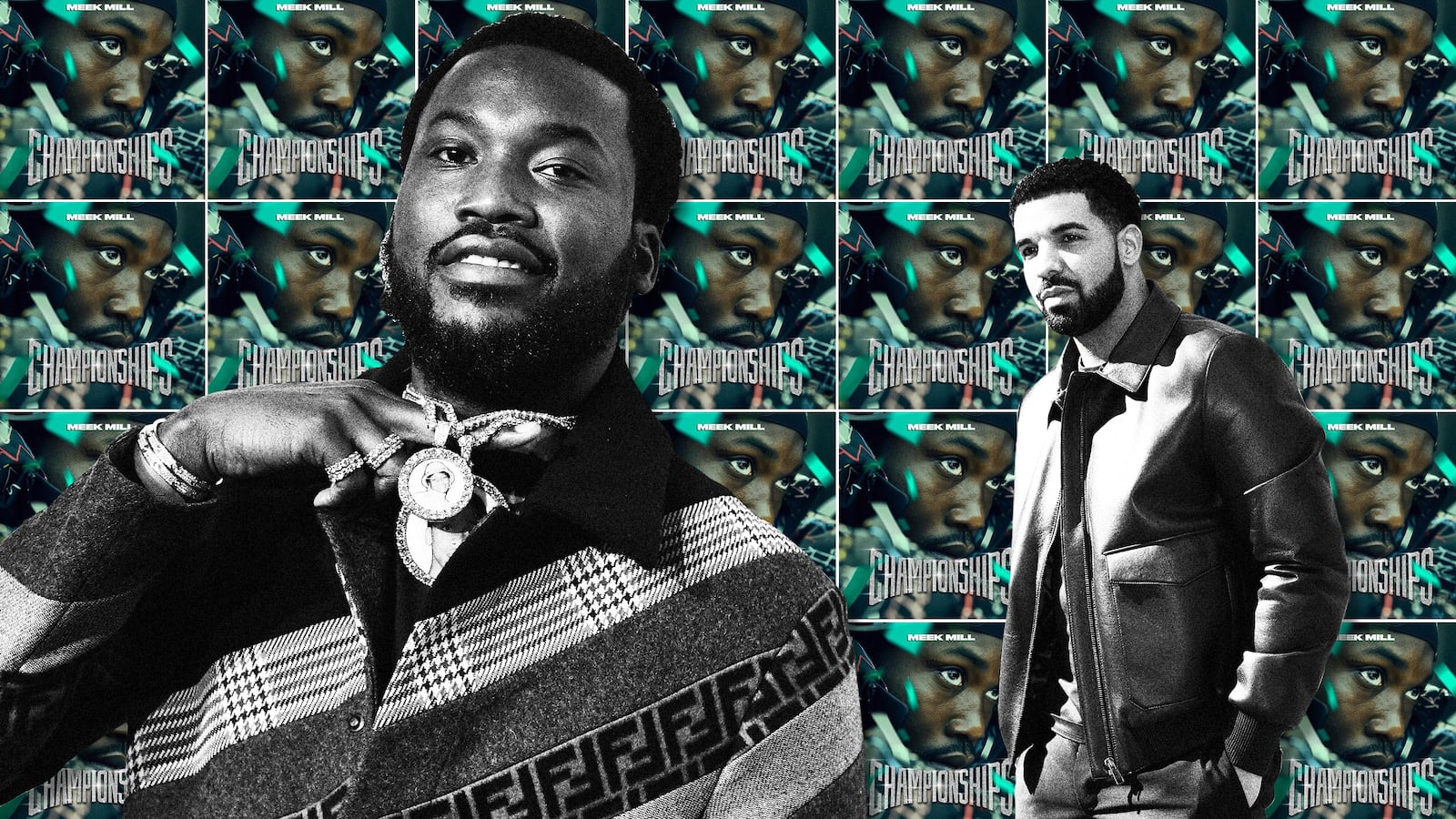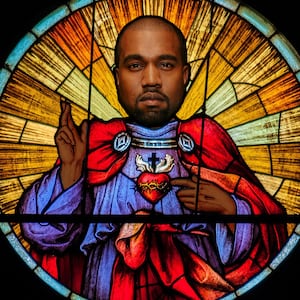“My mama used to pray that she'd see me in Yale / It’s fucked up she gotta see me in jail / On the visit with Lil Papi, it hurt even though I seemed to be well / They got a smoker with a key to my cell, damn…”
In November 2017, rapper Meek Mill (born Robert Rihmeek Williams) was sentenced to 2-4 years in prison for violating his probation from a 2008 gun and drug case. The sentence sparked a wave of outrage and support for the embattled Mill. A year later, Meek has released his first full-length project since his release from state prison back in April, and Championships finds the zeroing in on the system, his imprisonment, and post-Trump America. The album reveals the depths of despair and anger Meek felt throughout the past year; but it also illuminates how the singular pain of Black men can sometimes blind us to the wider struggle within our community.
Meek Mill’s real-life drama understandably looms large on Championships. His incarceration and battle for freedom made international headlines, with everyone from Philadelphia 76ers legend Dr. J to New England Patriots owner Robert Kraft throwing their support behind the 31-year-old hip-hop star. But there are ancillary concerns that also take center stage on the album, from Meek’s now-defunct feud with superstar Drake, to a highly-publicized beef between two of the biggest names in music.
Hip-hop hasn’t been “Black people’s CNN” in a while—at least not the most mainstream incarnations of the billion-dollar industry. But it has remained a powerful platform for expression and commentary, and Championships more than carries that tradition. Meek has always been at his best when at his most introspective, and there’s no shortage of it on his latest. “Was dead broke but rich in soul, was we really that poor?” he raps on the title track. “Was we really that dumb? ‘Cause we carry a gun / And every nigga in my neighborhood carryin’ one / ‘Cause we had nightmares of our mamas got to bury her son.”
But, on the Don Cannon-produced “Trauma,” when Meek raps, “Watching a Black woman take my freedom / Almost made me hate my people…” the line is acidic both for the rapper’s candor and for how much it says about internalized contempt. Even as he criticizes what he sees as self-hate in Judge Genece Brinkley, he seems oblivious to how his contempt for her made him “almost” hate his own as opposed to fortifying his contempt for the white-supremacist system in which she operates as a cog.
When Rick Ross warns, “Purple hair got them f*ggots on your back” on the Biggie-referencing “What’s Free?,” the jab at Tekashi 6ix9ine’s legal troubles serves as a reminder that rap-game homophobia can still be par for the course even on a song that seems to question the idea of freedom against oppression. It’s another example of how rappers’ vision for “progress” doesn’t include uprooting certain kinds of hate.
Drake makes a much-talked-about appearance on Championships, on the track “Going Bad,” their first collaboration since 2015. Their reconciliation has taken place publicly over the past few months, with Drake bringing out his former rival at a show in Boston back in early September during Drake and Migos’ Aubrey and the Three Migos Tour.
That high-profile guest appearance on Meek’s project was almost immediately overshadowed by a Jay-Z guest verse, that media outlets quickly pounced on as evidence of more mud-slinging between Jay and his former buddy, Kanye West.
“No red hat, don’t Michael and Prince me and Ye / They separate you when you got Michael and Prince’s DNA, uh / I ain’t one of these house niggas you bought / My house like a resort, my house bigger than yours…”
As social media and the wider swath of commentators took the line as a jab, Jay broke his famously muted approach to Twitter by tweeting some clarification:
That sense of solidarity is a major theme on Championships. In Jay’s case, it’s understandable for the legendary rapper to not want to feed the trolls with petty dramas between he and West; but it should be recognized that downplaying the recklessness of Kanye’s past six months for the sake of “brotherhood” can be more detrimental. High-profile Black celebs shouldn’t let white America’s exploitative appetite for Black conflict make them feign solidarity with those who would align themselves with white America’s hatred.
“Kanye came out of nowhere and just went red hat,” Meek explained to CNN. “And that was kind of against everything we represent.”
Mill understands how his situation reflects a larger issue—“I’m not the only one that gets found guilty for these things. Cops charge people with these things at an alarming rate,” he told CNN—but there’s a murkiness in the music. And with Jay’s line, once again, that superficial solidarity pops up on the album, and its contrast is fascinating. Drake and Meek’s reconciliation should be applauded, serving as further proof that “rap beefs” don’t have to be endless, spiraling whirlpools of drama and immaturity. But Kanye represents something else, and Jay’s words are misplaced when applied to that sideshow. Meek seemed to indicate as much when discussing West’s political pandering.
“I had phone calls with Kanye for hours. He was trying to get me to go to things like [his White House visit],” he recalled during an appearance on Ellen this week. “It was a mockery, really. I don’t think [Kanye] addressed anything that had to do with what was tough on justice reform. He wasn’t prepared for it, and he shouldn’t have done it."
To be certain, Championships is an inspired album. As can often be the case, Meek Mill’s personal hell has made for compelling art, and the production looks back to classic East Coast hip-hop moments for soundscapes (Notorious B.I.G., Reasonable Doubt-era Jay, Mobb Deep) that don’t sound like that era, but evoke it. The commentary on the prison system is valid, and Meek’s struggle is real, but one would hope the scope of Black oppression would broaden and young Black men begin to unpack all the ways in which all Black people are embattled by a hateful system. Black men, women, LGBTQ people—our fight against that system can’t come via disregard for our own. Props to Meek for making a creative statement of purpose and for ending the foolishness between he and Drake. His focus is sharp; it’s clear that Meek is emboldened by his experiences and has found a sense of purpose that has elevated his music. Here’s hoping he recognizes how to make purposeful art that recognizes the vastness of his community. That’s the kind of solidarity hip-hop needs if it’s going to move forward.







